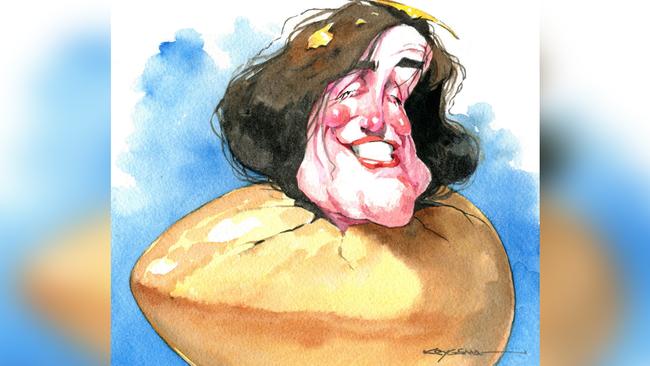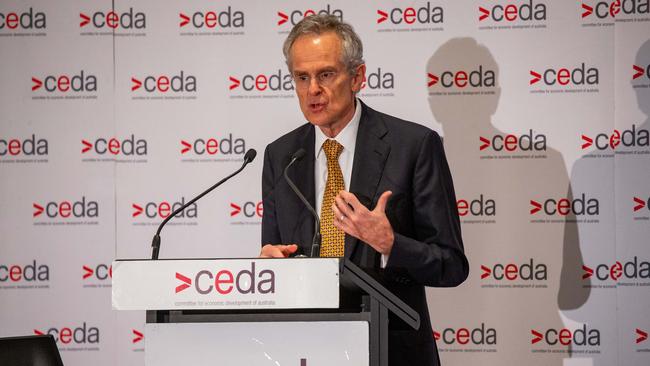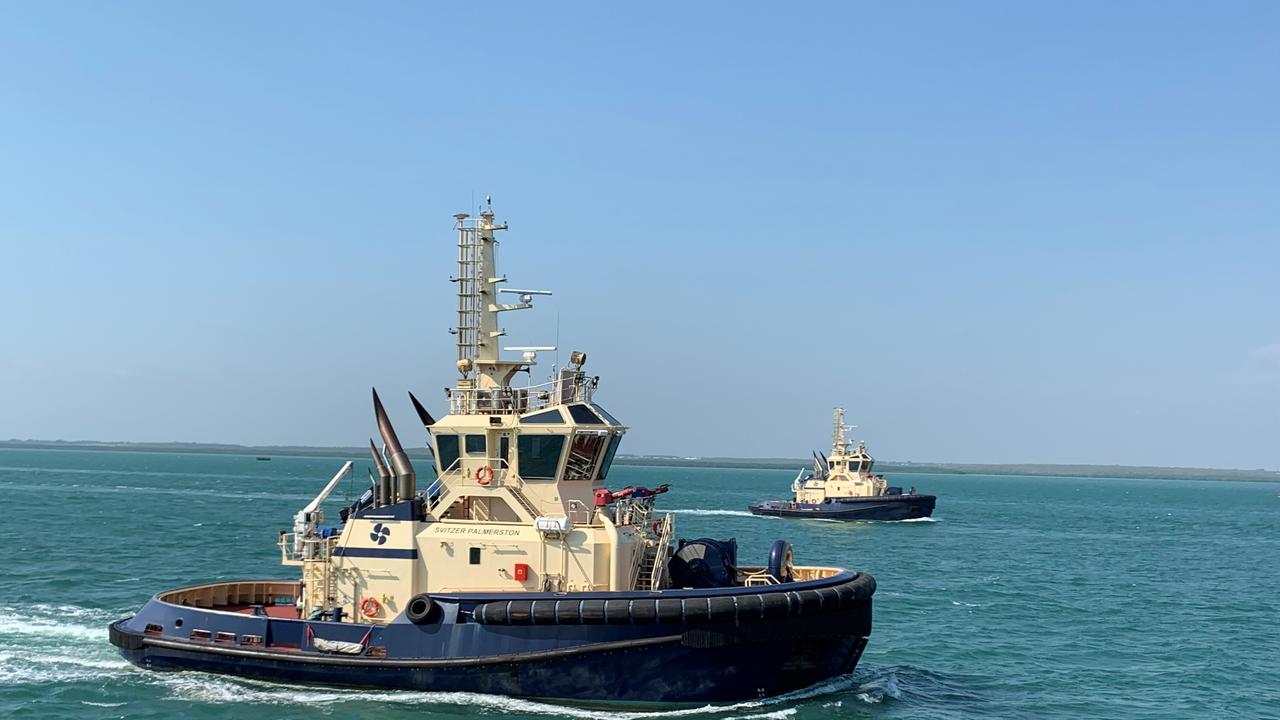Facebook owner Meta wants ban on publishing details of scam crypto ad

The digital giant argued in court this week that publication of details of the case may affect a criminal case running against the firm.
Fortescue chief Andrew Forrest has launched a criminal case against Meta for the use of his picture in crypto ads.
The Forrest case is due to come before the court for another hearing next week, but Meta has indicated it may challenge the jurisdiction of an Australian court in the action.

The Australian Consumer & Competition Commission launched its civil case in March and in a statement then boss Rod Sims said: “Meta should have been doing more to detect and then remove false or misleading ads on Facebook, to prevent consumers from falling victim to ruthless scammers.”
In trying to block access to details of the case, Meta reportedly argued “the allegations in these proceedings are matters which are likely to be of significant and sustained interest to the public and to attract considerable media attention as they relate to high-profile Australian public figures, and the subject matter is something that’s likely to both gain the attention and stick in the mind of potential jurors.”
The ACCC opposed the ban, saying the details of the case were already in the public domain and the principles of open justice demanded transparency.
Unsaid was just what Meta saw in the pleadings that it is trying to keep from the public.
Over the last few years, as international regulators stepped up their campaign against the digital platforms, evidence gained in one jurisdiction has increasingly appeared in other jurisdictions.
Federal Court judge David Yates reserved judgment on what appears to be an unprecedented request.
Super funds battle
The ACCC’s coming decision on the Port of Geelong case underlines the increasing competition law focus on superannuation funds as they take direct stakes in listed and unlisted companies.
The decision due on Thursday was deferred pending “receipt of further information”, which suggests the regulator was poised to reject the deal.
Its proponents Tasplan and Palisades are now looking at alternatives, including a new structure to reduce the obvious links with the rival Port of Portland.
The $1.2bn Spirit Super consortium bid for Geelong was 51 per cent-owned by Tasplan, Tasmania’s largest not-for-profit fund and Sydney-based Palisades Investments.
Palisades also controls 100 per cent of the Port of Portland, which together with Geelong controls over 50 per cent of bulk commodity trade to and from Victoria.
Of note, the Tasmanian government will from November move the port for its Spirit of Tasmania ferry from the Port of Melbourne to Geelong, which is one more reason for Tasplan to support the Geelong bid.
The big movers in corporate Australia today are what are known as profit for member funds (industry funds) because they are flush with spending power.
The funds are helping keep media companies alive through big brand advertising spending, now default funds have given way to stapled funds, which means they want to make sure their name is in your head when it comes to picking a super fund.
From a competition policy perspective, they are increasingly raising issues, not just because they are now taking big stakes in companies like Healthscope and the Ramsay bid. Many have common assets through their IFM membership and their interests are diverse with fingers in many allied pies.
The ACCC only gets interested when someone owns more than 20 per cent of an asset, but the conspiracy theories will grow when the likes of $260bn gorilla AustralianSuper starts buying 5 per cent-plus stakes in all the big four banks.
AustralianSuper only wants a position in 20-25 Australian listed equities and understands what market power means.
Airports are the most obvious example of cross-holdings, with IFM controlling 85 per cent of Sydney, 25.2 per cent of Melbourne, 20 per cent of Brisbane and 77.4 per cent of Darwin.
IFM shareholder AustralianSuper owns 5.2 per cent of Perth and profit-for-member comrade UniSuper owns 15 per cent of Sydney, 7 per cent of Brisbane and 49 per cent of Adelaide.
Just as well Qantas has a stranglehold on Australian aviation because it would have noted while it was reporting $5.1bn in losses for the two years ending June 2021 Melbourne was the only one of the big four to lose money last year amid the Covid shutdowns.
The links between the airports, which hit airlines with revenue-sapping aeronautical charges, raise eyebrows even if arguably they don’t directly compete.
The bottom line is the so-called competition mafia, the lawyers advising on ACCC issues, now have a new lucrative line of clients in profit-for-member funds.
Bansal’s Boral jump
The attraction of running a listed company, albeit one 70 per cent-controlled by Kerry Stokes, was a reason why Vik Bansal jumped ship from InfraBuild to Boral.
His pay cheque virtually mirrors that at Cleanaway and InfraBuild, but includes upside in terms of a $1.5m sign-on bonus if he stays for three years plus $1.5m in options based on long-term hurdles.
The departure comes as InfraBuild faces a rare defeat at the hands of the Australian Dumping Commission, which has recommended its case against merchant bar imports from Taiwan despite dumping margins found of up to 20.5 per cent. The reason is InfraBuild is booming and demonstrably there is no injury.
Likewise there was no injury when the previous government imposed dumping duties on BlueScope in January in the middle of an era of record profits, based on the price of imports from its own mill in Vietnam.
BlueScope and InfraBuild are domestic monopolies that account for 83 per cent of cases before the Australian Dumping Commission and 71 per cent of measures in place. Anti-dumping measures are another form of protection that benefits a few at the expense of many.
BNPL under pressure
Its just as well Anthony Eisen and Nick Molnar pocketed $185m cash as Afterpay’s stock price soared because the stock value of its acquirer (now called) Block has fallen from a five-year high of $US268 a share to $US76.50.
Locally, Zip has fallen in value from $7.7bn to $430m, and federal government talk to change the rules to ensure BNPL is classed as credit don’t help.
Credit is now classed as debt over 62 days, which is the loophole used because BNPL transactions settle in 42 days.
Then there are credit issue like bad debts, which BNPL has always claimed wasn’t an issue because if you don’t pay you can’t get more – this doesn’t get the money back on the first transaction.
BNPL defines bad debts as a percentage of gross merchandise value, which ignores the initial downpayment and, when measured against receivables as calculated by the banks, the numbers are bigger by a factor of at least 32 times.



In an unprecedented action, digital platform giant Meta (Facebook) has sought to ban publication of details of an ACCC civil case alleging breaches of misleading conduct for failure to remove ads using prominent Australians in cryptocurrency advertisements.